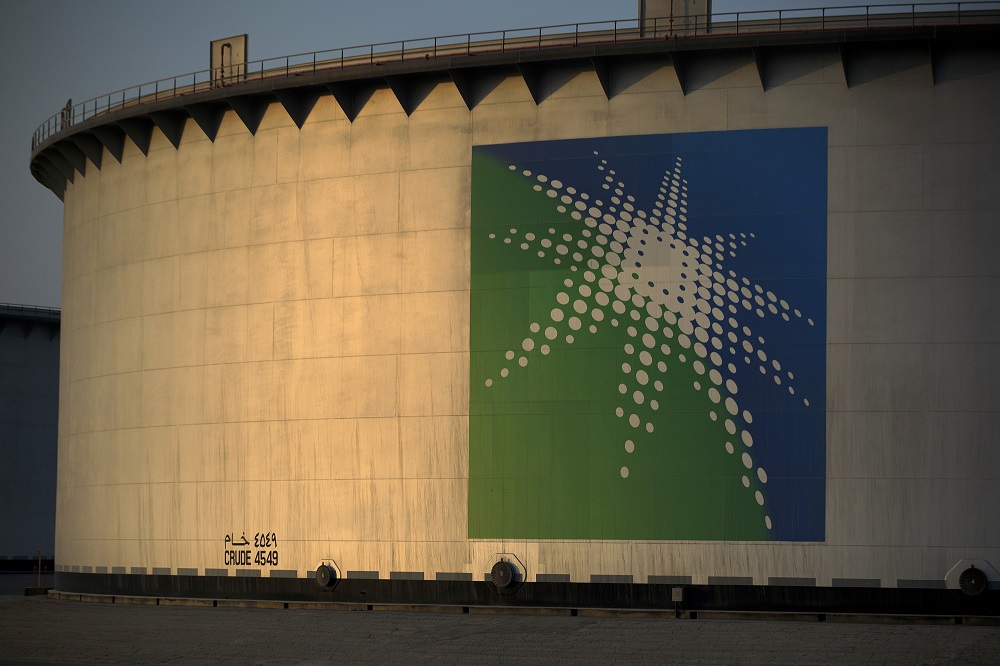International
Oil falls sharply alongside other commodities as uncertainty grows
Published on : 2020-02-24
.jpeg)
SINGAPORE (Bloomberg) -- Renewed fears that the coronavirus will harm global growth rocked commodity markets again on Monday, with oil and metals prices tumbling while gold soared toward $1,700 an ounce amid a flight to haven assets.
As the deadly virus spreads more widely outside China, raising the threat of a global pandemic, finance chiefs and central bankers from the world’s largest economies said they see downside risks persisting.
That’s spurring fresh alarm in commodity markets that had started to recover from lows hit earlier in the month when China’s virtual shutdown threw supply chains into chaos. With the International Monetary Fund cutting its global growth forecast and warning that it’s also looking at more “dire” scenarios, investors are concerned that risks to raw-material demand are worsening.
“Commodities are witnessing another risk-off day as coronavirus concerns boil up,” said Norbert Ruecker, head of economics at Julius Baer Group Ltd. in Zurich. “The oil market remains concerned about demand” while “the flight to safety pushes gold to new highs.”
Oil led the losses on Monday, tumbling more than 3% in London and New York. Until Friday, Brent crude had been in the longest run of gains in more than a year thanks to Chinese fiscal stimulus and new threats to supplies from Africa and Latin America.
The declines reflect a broader market sell-off as the spread of the virus outside China spooks investors. Asian and European equities slumped along with U.S. futures, while the Australian dollar retreated along with the offshore yuan.
South Korea, the hardest-hit country after China, had earlier raised its infectious-disease alert to the highest level after a 20-fold increase in cases. The situation in Europe was also escalating, with Austria halting a train from Italy on concern there were two infected passengers on board. Italy -- now the virus’s epicenter on the continent -- canceled the Venice Carnival and other events amid a rising case load.
As they flee riskier assets, investors are searching for safety, sending gold prices to fresh seven-year highs, with bonds also advancing. Bullion prices have taken off this year, rising about 10% as concerns over the virus deepen and speculation mounts that the U.S. Federal Reserve will ease monetary policy if the global impact worsens.
“The spread of the Covid-19 to Italy and South Korea is threatening the rebounds in asset prices and that fear is driving gold prices higher,” said Howie Lee, an economist at Oversea-Chinese Banking Corp. in Singapore. “Upward momentum is strong and interest in gold is set to remain high until the situation abates.”
Key commodity markets as of 10:50 a.m. in London
Brent crude -3.6% to $56.38/bbl
WTI crude -3.6% to $51.47/bbl
Spot gold +2.5% to $1,684.92/oz
Copper (LME) -1.3% to $5,690/ton
Iron ore (SGX) -1.9% to $88.18/ton
Rubber (SGX) -2.8% to $1.34/kg
Wheat (CBOT) -1.7% to $5.425/bushel
Shares of some of the largest commodity companies were also affected by the sharp moves in prices. A gauge of South African gold producers climbed as much as 8.4% to the highest since 2002, led by Harmony Gold Mining Co. Yet BHP Group, the world’s biggest miner, slumped 5.4% in London, while BP Plc lost 3.5%.
The havoc wreaked by the virus in China is a stark warning for investors as it spreads outside Asia. Oil demand in the world’s biggest importer collapsed as Beijing restricted travel and shut down factories, prompting refineries to close, stockpiles to swell and shippers to seek to divert cargoes elsewhere.
The world’s biggest oil producers have foundered. The OPEC+ alliance led by Saudi Arabia has struggled to agree on a collective response, dropping the idea of an early emergency gathering amid opposition from Russia.
Buyers of liquefied natural gas have been trying to get out of their contracts, with demand so bad that empty ships have been lining up in Qatar, the world’s biggest seller. Copper smelters have been forced to cut production, while containers full of frozen meat have piled up at Chinese ports because of a lack of truck drivers.
Still, commodities could rebound after bearing the brunt of the current sell-off as plants come back into operation, with activity signals in China in particular starting to improve, according to UBS Group AG’s wealth management unit.
“Given the fact that relative to other assets, commodities still remain very low and particularly taking the burden of this reaction, then you would expect the recovery to be quite sharp as we go into the third quarter,” Wayne Gordon, executive director for commodities and foreign exchange, said in a Bloomberg Television interview.
Beijing is now pushing for people to get back to work, loosening the criteria for factories to resume operations, as it tries to find a balance between containing the virus and preventing a slump in the world’s second-largest economy. But it’s contagion outside China that’s worrying markets.
“The uncertainty around how cases outside of China evolve is likely to keep market participants nervous, and therefore markets are likely to remain volatile,” ING Bank commodity strategist Warren Patterson said.







